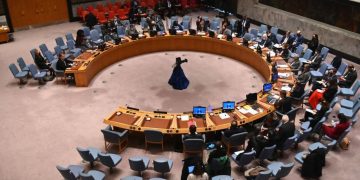Minister for Finance Muhammad Aurangzeb warned on Sunday that Pakistan will continue to seek International Monetary Fund (IMF) bailouts if it fails to boost tax revenue.
The finance minister said that he was “relatively confident” of reaching a staff-level agreement with the global lender this month for an estimated loan of $6-$8 billion.
“But it will not be our last fund programme if we don’t bring our tax revenues up,” said the finance minister while speaking during an interview with Financial Times.
The federal government presented the tax-loaded Rs18.877 trillion budget for the fiscal year 2024-25 (FY25) last month, aimed at shoring up public revenue and satisfying the IMF, which has repeatedly demanded improved tax collection.
The budget aims to raise Rs13 trillion by next July, a roughly 40% increase from the current financial year, to bring down a ruinous debt burden that has caused 57% of government revenue to be swallowed by interest payments.
The tax rises will mostly fall on salaried workers, who comprise a relatively small part of Pakistan’s mostly informal economy, as well as some retail and export businesses. The budget also threatened punitive measures for tax avoiders, including restrictions on mobile phones, gas and electricity access and the ability to fly abroad.
“We do not have five years for our programme,” Aurangzeb warned in the wake of a budget that seeks to reset the country’s ailing economy. “We have to start showing, start delivering, in the next two to three months,” he said.
“The direction of travel is positive, and investors are showing confidence in the stock market,” said Aurangzeb, referring to the KSE-100 index, which is one of Asia’s best-performing year to date. Still, the government faces a considerable challenge in putting Pakistan on the path for longer-term growth and debt sustainability, he said.
















































